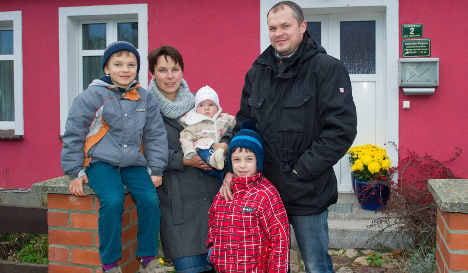In Rosow, part of the Gartz municipal grouping, about 500 of the town’s 7,000 residents hail from Poland – something municipal director Frank Gotzmann called the “start of a trend.”
He said Gartz was looking to benefit from its proximity to the Polish city of Szczecin – formerly the German Stettin – just 20 minutes away.
And Brandenburg isn’t the only German state that’s attracting people from across the border. Polish families are also picking up and moving to Mecklenburg-Western Pomerania further north.
One of these families, the Popielas, made the jump to Gartz in 2007 and 2008, when Poland joined the Schengen zone – a move that paved the way for passport-free travel to and from Germany.
“We are really content,” Dominika Popiela said, praising Rosow for its affordable property values, air quality and peaceful nature. She and her husband now help other Poles settle in the area – providing advice on issues like real estate and getting to know Germany.
Many young parents are drawn to the area by cheap home prices; residences in Rosow are often more affordable than apartments in Szczecin, which is home to more than 400,000 people.
The renovation work undertaken by new buyers have saved some older buildings from falling further into disrepair.
The influx of Poles has also spelled expansion for Gartz’s schools. Gotzmann said there would soon be instruction for children in their native Polish. There are already 10 classes available to adults who wish to learn German.
Some Germans have also signed up for Polish language courses. Now, Gotzmann said, even residents who initially had reservations about the newcomers agree that their Polish neighbours have successfully integrated into the community.
DPA/The Local/arp



 Please whitelist us to continue reading.
Please whitelist us to continue reading.
Member comments